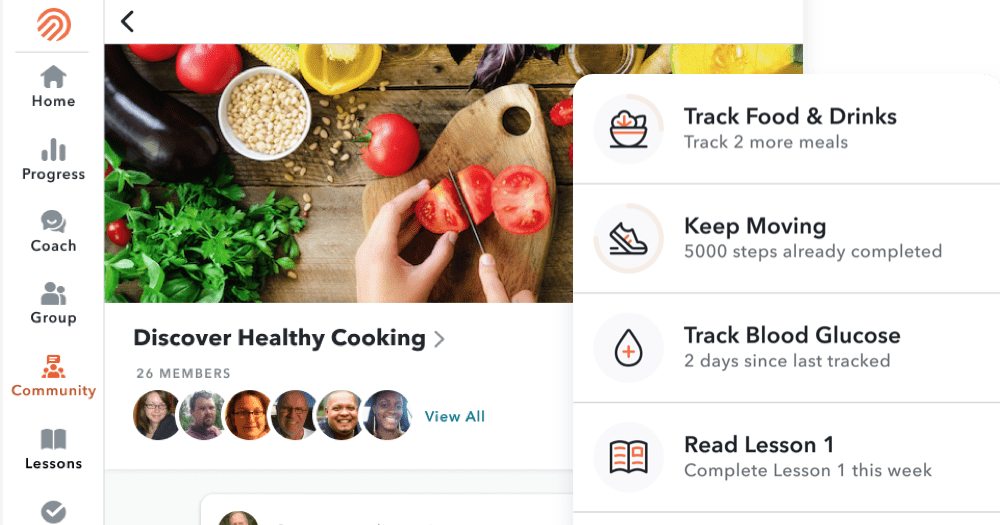US-based Omada Health launches an AI agent to provide Nutritional Intelligence

In a world overrun by ultra-processed snacks and yo-yo diets, Omada Health has just dropped a game-changer: Nutritional Intelligence. It's not another calorie-counting app or trendy meal plan. Instead, it's a thoughtful, AI-powered support system rooted in clinical know-how and designed to help folks build a better relationship with food — not fear it.
At the heart of this new experience is OmadaSpark, a clever AI assistant that chats with you in real time, kind of like a well-informed friend who happens to know a lot about nutrition. But this isn't just some chatbot. It works in tandem with real-life care teams, combining human warmth with machine precision to guide people through tricky eating behaviors and support lasting change.
"We believe there is a clear market need for real-time educational support backed by behavioral science to improve mindsets and behaviors toward food," said Wei-Li Shao, President at Omada Health.
How does it work?
OmadaSpark isn't here to scold you for craving cookies. Instead, it helps you understand why you want them — and what you might do about it. Here's how it breaks it down:
- Motivational Interviewing: Got a thing for stress-eating? OmadaSpark gently nudges users through guided conversations, helping them pinpoint goals and break free from habits tied to emotion rather than hunger. It's a bit like having a therapist and nutritionist in your pocket.
- Real-Time Nutrition Education: Confused about carbs? Wondering what to eat while on GLP-1 meds? This AI doesn't just spit out textbook answers — it tailors its responses based on your health conditions, food preferences, allergies, and even your age.
- Smarter Food Tracking: With barcode scanning, water logging, and photo-based meal recognition, the app takes the pain out of tracking while respecting the cultural and emotional meaning food holds for many of us.
All of this is looped back to Omada's human care teams, giving them richer insight into what makes members tick — and how to coach them better.
Why does it matter?
Because food is personal. And let's face it — navigating a grocery aisle today feels like dodging a minefield of sugar, salt, and slick marketing. On top of that, long-term healthy eating isn't just about willpower or trendy diets.
"We're helping members understand what drives their food habits — and then ease them into healthier habits," said Dr. Justin Wu, Omada's VP of Clinical Innovation. His team is betting that AI can do more than just give advice — it can build confidence, reduce guilt, and support change that sticks.
This is especially timely as Americans turn to weight-loss meds like GLP-1s, often without the behavioral support to match. Omada's bet? That combining AI smarts with human empathy can do more for sustainable health than either could alone.
The context
Obesity, diabetes, and hypertension are climbing. So is our appetite for quick fixes. But the science is catching up — and it's waving a big red flag at ultraprocessed foods. Researchers are warning us: it's not just what we eat, it's how we think about eating that counts.
Enter Omada's approach. It's not just about cutting calories or counting macros. It's about teaching people to listen to their bodies, understand their triggers, and take control in small, steady steps. And with AI like OmadaSpark pulling weight alongside growing care teams, the company is scaling support without losing the human touch.
So, instead of trying to outsmart our cravings or shame ourselves into skipping dessert, maybe the smarter path is to be curious. With OmadaSpark, curiosity just got a whole lot easier — and kinder.
💡Did you know?
You can take your DHArab experience to the next level with our Premium Membership.👉 Click here to learn more
🛠️Featured tool
 Easy-Peasy
Easy-Peasy
An all-in-one AI tool offering the ability to build no-code AI Bots, create articles & social media posts, convert text into natural speech in 40+ languages, create and edit images, generate videos, and more.
👉 Click here to learn more


